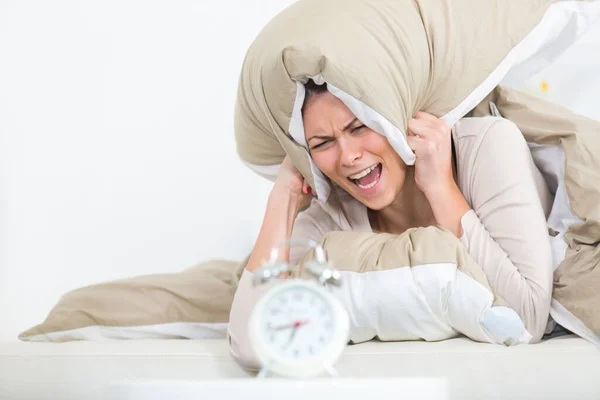A rough night of sleep can throw off your entire day, leaving you feeling fatigued, unfocused, and irritable. Understanding how poor sleep affects your body and mind—and what steps to take afterward—can help you regain balance quickly. Sleep experts emphasize that not all sleep deprivation is the same, and recovery strategies differ depending on the type and severity of sleep loss. When sleep disruptions occur, knowing how to recover efficiently is vital for maintaining cognitive function, emotional stability, and overall health.

Acute Vs. Chronic Sleep Deprivation – Explained by Rebecca Robbins, PhD
Rebecca Robbins, PhD, an assistant professor of medicine at Harvard Medical School and an associate scientist at Brigham and Women’s Hospital, clarifies the distinction between acute and chronic sleep deprivation. Acute sleep deprivation refers to missing significant sleep over a short time—such as staying up all night or getting just a few hours. This can drastically impair alertness and mood the following day but is generally recoverable with one or two nights of better sleep. In contrast, chronic sleep deprivation results from consistently getting insufficient sleep week after week, leading to cumulative deficits that affect metabolism, immunity, and cognitive health more severely.
Dr. Robbins highlights that acute deprivation demands immediate attention to mitigate short-term consequences, while chronic deprivation requires long-term lifestyle changes. Her research shows that even one poor night of sleep can reduce reaction time by up to 70% and severely impair judgment, underscoring the urgency of recovery techniques.
How To Recover From A Bad Night of Sleep—Fast
If you find yourself grappling with the aftermath of a trash night of sleep, swift and thoughtful action helps restore functionality and prevents the negative spiral of sleep loss. Sleep doctors recommend the following strategies:
Prioritize Napping Wisely: A 20- to 30-minute nap early in the afternoon can boost alertness and mood without interfering with your upcoming night’s sleep. Avoid late or extended naps, which may disrupt your sleep-wake cycle.
Hydrate and Nourish: Sleep deprivation often exhausts your energy reserves and influences hormone balance. Drinking water and eating balanced meals rich in protein, healthy fats, and complex carbs help replenish your physical and cognitive reserves.
Practice Strategic Caffeine Consumption: Small doses of caffeine early in the day can enhance alertness but avoid excessive or late-day intake to prevent further sleep disruption.
Adjust Exposure to Light: Morning sunlight exposure can help reset your circadian rhythm, making it easier to fall asleep the next night. Conversely, limit blue light exposure from screens in the evening.
Engage in Light Physical Activity: Gentle movement, such as a walk outside, stimulates circulation and counters fatigue without overstressing your already taxed system.
Create a Relaxing Bedtime Routine: Aim to calm your nervous system through activities like reading, meditation, or listening to soothing music, enhancing your chances of quality sleep when bedtime arrives.
Why It’s Important To Recover From A Poor Night Of Sleep Quickly
Failing to recover promptly can have immediate and longer-term consequences. Even one night of poor sleep compromises decision-making abilities, emotional regulation, and immune function. Research reveals that sleep debt accumulates rapidly, increasing risks of cardiovascular disease, diabetes, and mental health disorders if left unaddressed. According to the National Sleep Foundation, adults require 7 to 9 hours of uninterrupted sleep for optimal functioning, and deficits influence everyday performance and safety—especially in activities like driving or operating machinery.
Consider Jane, a marketing executive who once stayed up all night prepping for an urgent presentation. The following day, her concentration faltered, she felt emotional volatility, and minor errors crept into her work. By following expert advice to nap briefly, hydrate, and limit caffeine, Jane regained much of her sharpness by midday. Her rapid recovery prevented deteriorating performance and stress buildup, illustrating why quick action is essential.
What Happens to Your Body After Poor Sleep?
Poor sleep triggers a cascade of hormonal and neurological changes, including elevated cortisol (stress hormone) levels, impaired glucose metabolism, and reduced production of growth hormones critical for cell repair. The brain’s ability to consolidate memory and process information diminishes, making multitasking harder and reducing creativity. This functional decline is why poor sleep is often linked with workplace accidents and increased error rates.
Expert Recommended Sleep Hygiene Tips to Avoid Future Trash Nights
Preventing another trash night of sleep hinges on adopting habits that reinforce your body’s natural rhythms. Experts advise:
Maintaining a consistent sleep schedule—even on weekends
Creating a bedroom environment that is dark, quiet, and cool
Avoiding heavy meals, alcohol, and vigorous exercise near bedtime
Limiting screen time at least one hour before sleeping
Conclusion
A poor night of sleep doesn’t have to ruin your day or spiral into chronic problems if you understand the key differences between types of sleep deprivation and follow strategies grounded in medical science. As Rebecca Robbins, PhD, explains, acute sleep loss demands targeted recovery tactics focused on hydration, nutrition, rest, and environment adjustments. Taking swift, informed action not only aids physical and mental recovery but also protects long-term health. By prioritizing quality sleep and mindful recovery, you reinforce your body’s resilience against future disruptions, ensuring that occasional trash nights do not diminish your well-being.










